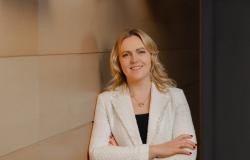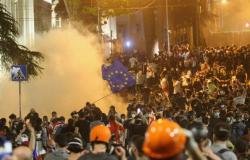One third of all greenhouse gas emissions in the European Union are generated by the buildings where we live and work. It is estimated that currently even 75 percent of all buildings are energy inefficient. However, the growing interest in “green” buildings fundamentally changes the situation – in Lithuania we should also see a jump in the number of buildings meeting international sustainability standards.
Currently, among the Baltic countries, Lithuania has the most certified buildings – about 170. In Latvia and Estonia, 82 and 73 buildings are certified, respectively. Business centers and commercial buildings are among the most frequently certified buildings.
“This year, we observe a growing attention of business center developers to the implementation of sustainability standards and building certification. Sustainability certificates not only ensure that a building meets the needs of tenants or visitors, but also help increase its value. For this reason, there is a growing interest in the certification of industrial buildings as well”, comments Eugenijus Šapel, head of the Sustainable Buildings Department at Vesta Consulting.
According to him, compared to 2022, the real estate market felt a slight slowdown in the certification of buildings according to international sustainability standards last year, especially in inquiries for buildings already in operation.
“The biggest influence on the ebb of building certification last year was the slowed down construction volume due to higher prices of materials and works, economic uncertainty, as well as the decisions of the European Central Bank (ECB) to increase interest rates, which increased the borrowing costs of real estate developers.” At the moment, as economists again predict moderate economic growth, competition from developers for tenants will be more active this year,” says E. Šapel.
According to the interviewer, as the real estate market recovers from last year’s slowdown, more certificates meeting international sustainability standards should be issued this year than last year.
“Based on the number of existing registrations and the number of objects nearing the end of certification, we can predict that this year we will see a greater variety of certificates – although the BREEAM standard remains the most popular, a number of developers are also seeking compliance with LEED, WELL, FITWEL and other sustainability certificates,” he says.
According to the sustainability specialist, last year 19 new and operating buildings were certified in Estonia, 17 in Latvia, and 15 in Lithuania. In other neighboring countries, the certification of buildings is much more advanced – last year alone, more than 1,000 new and operational buildings were certified in Poland and Scandinavian countries.
Certificate – to ensure competitiveness
According to Erika Šukytė, manager of rental projects at the real estate agency Ober-Haus, certification of newly built business centers according to international sustainability standards is already a common process in the Baltic countries.
“When a new business center is introduced to the market, information about its sustainability is one of the main highlights. This is a message to the potential tenant that the business center is built to protect the environment as much as possible and contribute to the reduction of carbon dioxide (CO²) and greenhouse gas (GHG) emissions. This means that with the use of renewable energy resources and modern construction and building operation technologies, high energy efficiency and maximally optimized operating costs will be achieved – something that is relevant for many tenants of business centers”, says E. Šukytė.
Owners of business centers that are already in operation and built earlier are not far behind the wave of sustainability certificates – they try to meet the certification requirements and ensure the implementation of sustainability standards according to the building’s capabilities.
“Certification is one of the ways to remain competitive in the rather tight market of business centers: not only to attract new tenants, but also to retain existing ones. All the more so as tenants are increasingly giving priority to more sustainable buildings and are more inclined to rent offices in certified business centers, sacrificing larger office spaces in non-certified buildings,” says the interviewer.
According to “Ober-Haus”, rent prices for offices in Vilnius, depending on the location, business center and office space, in 2023 grew by 7-9 percent. Currently, office rents in class A business centers reach 16-20 EUR per square meter. meter (without VAT), B class – 10-15.50 Eur/sq. m (without VAT), no major price corrections are expected this year.
“Last year, the office rental market was shaken by a large increase in the prices of existing rental contracts due to the 20% reaching inflation, which this year is half as much and depending on the index provided for in the lease agreement (CPI, SVKI or others) should not significantly increase the rent paid by the tenant.
In principle, in 2023 we didn’t have very large office lease transactions, medium-sized and smaller companies were more active in the market, but IT, financial and public sector companies remain the most active,” explains E. Šukytė.
“BNS Press Center” publishes press releases of various organizations. The persons who published them and the organizations they represent are responsible for the content of the messages.
Tags: Lithuania leader number green buildings Baltic countries
-





